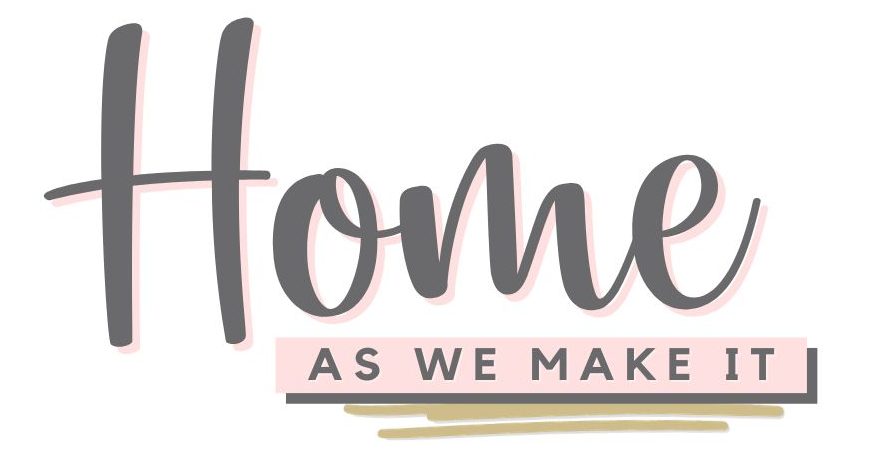How Blogging Helps Mental Health
1 in 5 adults suffer from a mental illness in any given year – and those are just the ones who talk about it. Blogging helps me with my mental health symptoms in a number of ways. Is blogging a way for you to cope with anxiety and depression too? Blogging for your mental health and blogging ABOUT mental health are two separate things, and both can be amazing.
This post is updated to capture new trends, ideas, and products related to blogging in 2022.
Note: This post may contain affiliate links, which means if you buy from my link I might make a small commission. This does not affect the price you pay. See the full affiliate disclosure here.
I’ve had a diagnosis of panic disorder and generalized anxiety disorder for over 15 years now. It took me many of those years to really feel comfortable talking about this part of my life, and even still I keep it hidden from certain situations and people. I’ve had really great, easy times in my life, and I’ve had dark, difficult times too. I can’t say for sure what causes this in me, but I’ve come to accept that my brain just works differently than “normal” sometimes. I’ve built up coping skills and ways to help with my anxiety, and blogging is just one of the things that helps me with my mental health symptoms. Here’s why:
Why Blogging Helps Mental Health
A Safe Place to Share
This is MY blog. I write it, I manage it, and I decide what content shows up on it. I could publish this post right now and set it to private so that nobody could ever read it. I could also share it over every social media outlet and start conversations with hundreds of people. This website is my own open book to do with what I choose.
Is the internet a safe place? Definitely not. There is some risk of trolls and other people who might not care for my blog or for me. I’m ok with that. It’s a risk I’m willing to take in order to have my own piece of the internet in which to speak my mind and my heart. I also really enjoy sharing the things that I know on this platform.
Currently I operate this blog and a new one, Bingecrafter.com. Over there I’m teaching about what I know about turning creativity, art, and craft skills into a profitable business.
I actually know a lot about a lot of different things, and I bet you do too. If you had a blog, What would you like to share about?
Community
Since starting my blog, I’ve interacted with all types of bloggers – those who also blog about mental health and those who blog about other things like parenting, food, or fashion. All of them have taught me things, and I have people who I can go to with questions or ideas. Readers leave comments on posts letting me know that they understand what I’m telling them, and that they appreciate my content. That makes me feel all warm and fuzzy inside. As I mentioned before, at least 1 in 5 people experiences mental illness. People need the information that I provide here, and that makes me feel good.
As I have increased what I know about blogging, I’ve taken courses and joined groups specifically for learning more about how to be better at this. I’ve made great online friends this way. As an introvert, I don’t usually go out of my way to meet people in the real world, so it’s important for my mental health that I make connections in some other way. With the last couple of years being a global pandemic, having an online outlet has been super helpful too.
A Healthy Creative Outlet
Writing is an enjoyable creative outlet that just about anyone can do. You don’t need a degree in journalism to be a blogger – you just need to want to write.
At the end of the day, my blog is one thing in my life that I’m really proud of. I make some money, I reach people every day, and I enjoy spending time creating the content you see here. Win-win-win!
A Way To Make Money
Not everyone blogs for fame and fortune, but I have learned over the years how to use my blog as a platform to make money, and I’ve learned to work with other bloggers to provide services that I can bill for. Years later, I have left my corporate job and now work online full time. My job was causing me a great deal of stress when I left it. Working at home, working for myself, and being in charge of my own day-to-day life is great for my mental health, and blogging has helped to get me to this point. I have freedom now, and it’s a huge weight off of my shoulders.

You know, You could start a blog too.
You could write about YOUR experiences and the way that you see the world. You could teach people what you know about any number of topics. You could carve out your space in the vastness of the web. I highly recommend it.
Below are some resources for you to get a blog started for yourself. I’ve done this a few times and know which companies/platforms to avoid, so I’ll share with you what I DO use in order to create a blog that looks great and has the potential to bring in money from ads and such.
**NOTE** If you plan on at any point making money from your blog, stay away from platforms such as blogger.com or wordpress.com. These sites will allow you to have and publish a blog, but they don’t allow advertising, and if they do it’s very limited. You’re also building a blog on someone else’s platform, which can be problematic. Using WordPress.org and having your own hosting allows you ownership and freedom to do what you like.
How to Start a Mental Health Blog (or any kind of blog) – The quick and easy step by step to-do list:
This part of the post includes affiliate links. clicking on these links may allow me to earn money from your purchases.
Personal blogging (if you’re as old I as I am you remember Tumblr and Livejournal) is not really a thing anymore. Now, most blogs are created with the purpose of being profitable. Whether you plan to write a blog as a personal project, or you have future goals of leaving your job and being an online entrepreneur, setting your blog up properly from the start is important. Here’s what I suggest you do.
- Brainstorm and Choose a Niche. A Niche is really just a topic. Choose a topic to blog about that is narrow enough that you have a focus, and as broad as you’d like it to be. Take some time to do this part. Really think about what you enjoy, what you know, and what you need to share.
- Choose a domain name. Don’t be bummed when the exact one you want isn’t available. Choose the next best .com and move on. I recommend buying a domain with .com rather than .org or some other extension. .com’s are easy to remember and recognize, and that’s important.
You can buy your domain name in a bunch of different places, but I like Namecheap.com. You’ll get the cheapest prices here – so cheap that you might even buy more than one domain name – just in case 🙂 Some people like to collect domains for a rainy day. You never know when you might need that one.
- Get Hosting. There are choices here, but I personally use SiteGround. I find their customer service to be top notch. I’ve used some of the other big names, and I have to say I like Site Ground much better than any of them.
Full transparency: I am an affiliate for SiteGround, which means that I earn money if you click on that link and start a website with them. Every Single Blogger on the whole entire internet is getting paid for telling you which web host to use. You will get conflicting information if you read too many articles like this one that tell you “how to start a blog”. You don’t have to listen to me, you should absolutely do your own research when choosing a web host. I currently host three websites with SiteGround and have for about 5 years now. I’m happy with them. They helped me last year when I almost lost this blog because I forgot to renew the domain name, and I’m forever grateful!
Having your own domain and hosting is IMPORTANT if you ever plan to make any money from your blog. You can’t blog on someone else’s platform, you need your own space. This costs a little bit of money. Probably $15 for a domain and between $50-100 for a year of hosting to begin with. The price for hosting goes up as your site gets more traffic. It’s worth it. You’ll work harder to get the blog up and running when you have some cash in the game.
- Install WordPress. If you choose a good host, they will do this for you or give you an easy way to do it yourself. I do like that Siteground includes WordPress set up and support with all of their hosting plans.
- Give Your Blog a Title. This can be the same as your domain name, or different. But you will need a name. I know that this can be hard, especially if you’re like me and struggle with making decisions. If you can’t choose, flip a coin or something. At the end of the day the name of your blog is not as important as the content you include in it.
- Consider the design of your blog. Starting out, there are plenty of free templates in WordPress that you can use. I currently use Astra theme on all of my sites. Astra has a free version, with an upgrade available that allows you to use premium page builders. I have not yet found that necessary, but it’s available if you need it. The way your blog looks is important, but I suggest that you don’t stress too much about it right away.
- Start Writing! No need to write 20 posts before publishing the blog. Make it live immediately and publish your first blog post. This will give you momentum.
OK, so that was really quick. Literally the 7 steps you need to start a blog off right. Nothing more, nothing less. After you do these things, THEN focus on improvement because you can only get better from here.
Need help getting started? Reach out to me. I will help in any way that I can! I’ve learned a lot about blogging from various sources, but if you want to learn how to write blog posts quickly so that you can build a blog, you will want to check out this course I took called Lightning Fast Content Creation. It’s a quick one, but it teaches you some shortcuts for getting written posts done faster than you thought possible.
If you don’t want help with writing, but would like some more guidance for starting or improving your mental health blog, I highly recommend that you check out this printable Blog Business Plan from The Self Love Rainbow. First of all, it’s beautiful. The colors make me so happy. But more than that, the creator has given you all that you need to plan out your blog or business using a printable planner full of worksheets, schedules, and tips. 376 pages! for less than fifty bucks. That’s crazy. Crazy amazing! The printable pages look like this:

You’ll get pages full of amazing resources including budgeting, setting up categories, designing your site, choosing business tools, content tracking, SEO, Social Media, and more.
Also included are worksheets to help you manage any stress or overwhelm you may feel about starting a blog or maintaining an online business.
With it all, you get tips, information, and instructions on HOW to do all of these things. That’s the Key, and why I really love this resource. It’s a one-stop-shop for setting up a mental health (or any other niche) blog!
Grab this awesome resource now!
WHAT YOU NEED TO KNOW ABOUT BLOGGING FOR MENTAL HEALTH
If you plan to blog about mental health, you need to be a bit careful. At the moment, content on the web that tells people how to heal or treat an illness, including mental illness, is not seen by google in a good light unless it is written by someone with the proper authority to do so. That means, that you can write a post like, “how to cure anxiety”, but unless you are a doctor or a therapist and you’ve shown such on your site, google won’t show your post in search results. For mental health bloggers without medical credentials, this can be an issue.
There are ways around this of course. What I do is I remember that I’m not a doctor or a magician, so I don’t write posts that promise any cures. Instead I focus on other ways that people can improve their life, and I focus on providing educational content. When appropriate, I include links to professional sources.
I also generally offer my own personal experiences when it comes to mental health. I am uniquely qualified to share information about my own self, and so are you.
Excellent Mental Health Blog Examples
If you want to see with other people are doing while blogging about mental health, or if you just need a good read, you can check out this list of personal mental health blogs compiled by blunt.therapy.com. There are over 40 different blogs that you can read there.
Talkspace (the most popular online therapy platform) has also given us a list of the Best Mental Health Bloggers to follow.
Microblogging for Mental Health
You don’t have to start a whole big blog like this one. Instead, consider microblogging to help your mental help. Millions of people use social media as a platform to share what they know or do every single day. Facebook, Instagram, Twitter, TikTok, all of the social media platforms will let you set up an account and start sharing.
If you want to try this, consider setting up a new account, so that you aren’t overlapping with your personal accounts. Think about what you’d like to share, and set aside a time each day or a few times per week to put out a new post to the world in a small, microblogging format.
Blogging certainly isn’t for everyone, but I believe that for me, Blogging has helped me to overcome some of my mental health hurdles, and maybe it can help you to. Leave a comment if you have questions!







